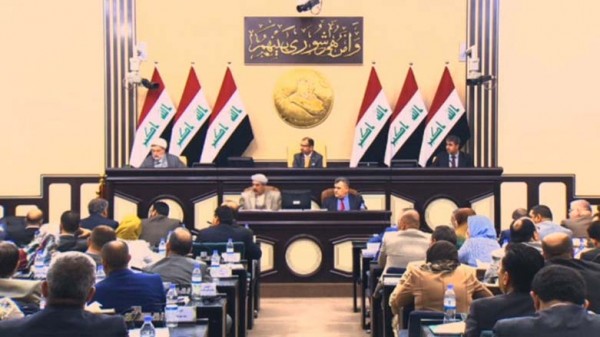Iraq’s lawmakers approved a revised budget for this year that’s smaller than initially envisaged to help narrow the deficit and reduce borrowing.
OPEC’s second-largest producer assumed oil prices would average 65,250 Iraqi dinar ($45) per barrel in the budget statement. The country’s total exports, including from the autonomous region of Kurdistan, would be 3.25 million barrels a day, the parliament’s press department said via WhatsApp messages.
Expected revenues are 101.3 trillion dinars ($69.4 billion), while projected spending is 129.9 trillion dinars, according to calculations based on the official exchange rate.
The fiscal shortfall is expected to be 28.6 trillion dinars, and officials said the deficit would be covered via the difference in oil prices set in the budget and the real prices at which barrels are sold.
Better Times
Iraq’s economy set to recover this year after suffering a steep drop in 2020
Source: IMF forecasts
Last year, the government devalued its currency by more than 20% against the dollar to avoid depleting its foreign-currency reserves after the coronavirus sapped demand for energy and caused prices to collapse.
Iraq’s economy is expected to expand 2.5% this year, according to International Monetary Fund estimates, compared with the fund’s projection of an 11% contraction last year. Still, net foreign assets are likely to continue dropping sharply into 2024, while the oil-rich country’s debt-to-gross domestic product ratio is among the highest in OPEC+, a grouping that includes non-OPEC oil exporters such as Russia.
Lawmakers also voted to dissolve parliament on Oct.7, ahead of the national election scheduled for Oct. 10.
Source: Bloomberg, March 31, 2021
By Abeer Abu Omar and Khalid Al Ansary








Comment here